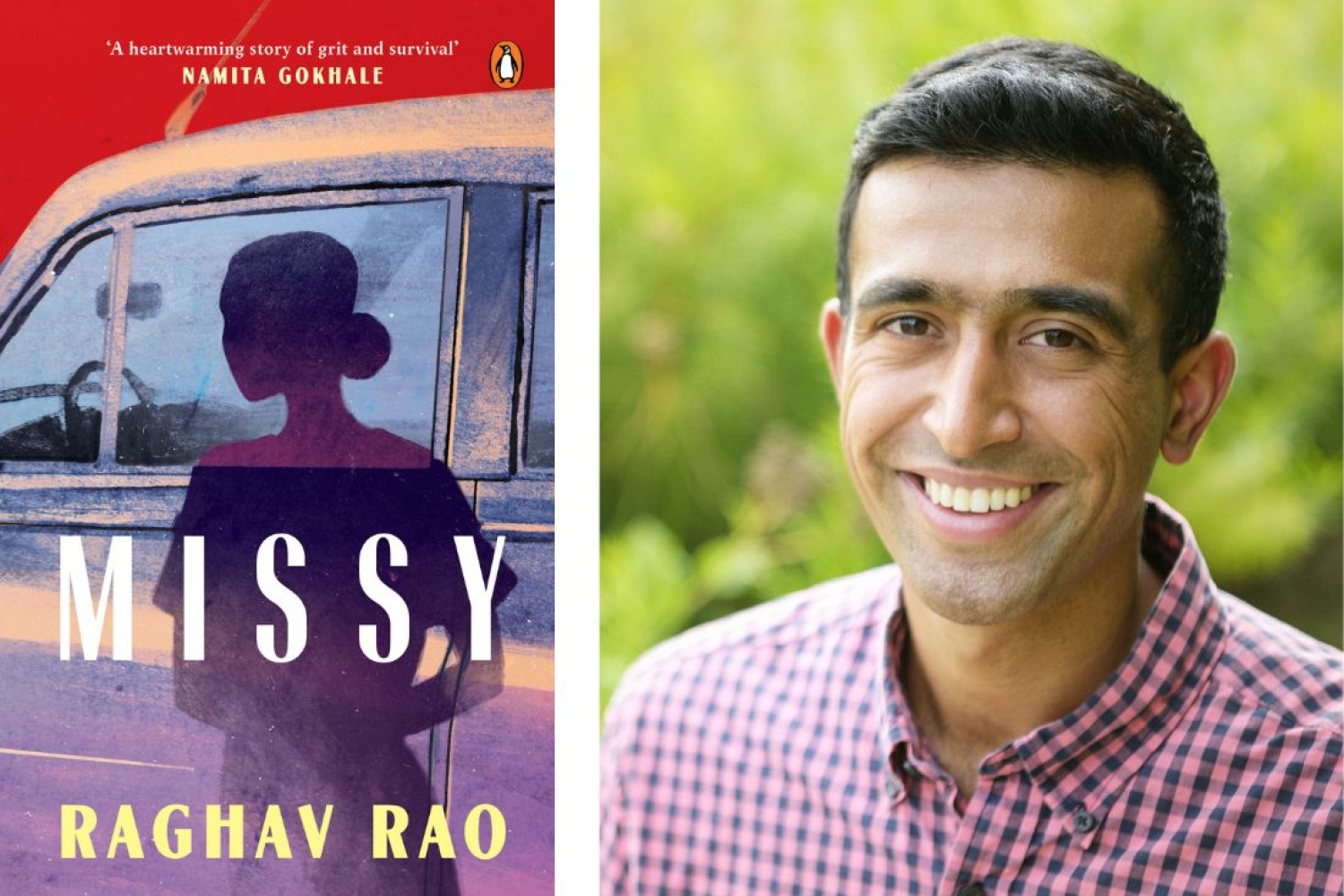

Set against the backdrop of St. Ursula’s convent in Madras, Missy follows seventeen-year-old Savi, who initially destined for a life of servitude, dreams of a future beyond the convent walls. Her journey culminates in Chicago, where her dreams take flight with the reinvention of herself as Missy. The story also navigates the tensions between tradition and modernity, exploring her complex relationships with her daughters.
Raghav Rao offers a compelling narrative that transcends borders, diving into the complexities of identity, migration, and the indomitable spirit of reinvention. He talks to us about reinvention, immigrant experience and the challenges of writing a debut.
REINVENTION OF THE PROTAGONIST
I’ve always felt that America is about reinvention. In India, for those of us who grew up there, escaping your origin story is challenging. People know who your parents are, what they did, and where you come from. In contrast, in America, many people create their own backstories. I found that potential exciting to explore.
Originally, in my first draft, Savi never made it to America; she ended up in the Middle East, where she had children, and they eventually made it to America. That was the premise of my original multi-generational novel. However, after multiple rewrites, my agent encouraged me to focus on Savi’s character. I then envisioned her as a driving instructor in America, and everything emerged from a single scene of her driving along Lake Shore Drive in Chicago. Sometimes, a single image can inspire an entire story.
COMPLEXITIES OF MIGRATION
I’ve been away from India for 15 years, and Savi has been away for twice that. When you’re gone for so long, you can feel like you’ve lost your home. For example, when I return to India, I see artists and writers doing amazing work, and I think, ‘They know India; I don’t anymore.’ But it’s important to remember that you still have a right to your memories, past, and identity.
People often fear what they lose when they leave and may turn their backs completely. I want to remind those who have left that the country still belongs to them, to some extent. America is going through a lot right now, and it may not represent what it did for us in our childhood. Yet, leaving India can also signify an opportunity to try something different. Migration isn’t solely about leaving India; it can also mean moving within India to larger metros where you can reinvent yourself.
CHALLENGES AS A DEBUT AUTHOR
Finding an agent was a major challenge. I was fortunate to connect with Priya Doraswamy after querying many agents who appreciated my writing but had reservations. Initially, I felt resentful, as if they were keeping me out. I now understand that they are overwhelmed with submissions and often work outside their 24-hour days.
When Priya took me on, she emphasized the need for me to rewrite the book for the market. My first manuscript straddled two genres and was too long for a debut. She suggested I focus on Savi’s story instead, and that’s how I reshaped the narrative. The entire process, from rewrites to selling the book, was challenging, but it was also rewarding. Given the saturation of the literary market, carving a niche is increasingly difficult, especially in an information-saturated culture where it’s hard to consume everythingavailable.
CONVENT AS SANCTUARY AND PRISON
For me, the convent represents both protection and confinement. I went to a boarding school called Rishi Valley School in South India, which was cut off from the outside world. While it offered a certain sanctuary, it also made us feel isolated from our peers who were experiencing popular culture. This duality of the convent as both a safe space and a limiting environment resonates with my own experiences. It allows for a clear narrative structure—putting a character in one world and then releasing them into another makes for a satisfying progression.
FRIENDSHIPS AND RELATIONSHIPS
If you’re writing a character-driven novel, plot is important, but character takes precedence. We define ourselves through our relationships—whether as a mother, sister, or friend. The reader picks up the book expecting to know this woman, so exploring her relationships is essential. Our sense of self is shaped by our connections to others. We cannot make sense of our world in isolation; we do so in relation to those around us.
Words Paridhi Badgotri
Date 26.10.2024